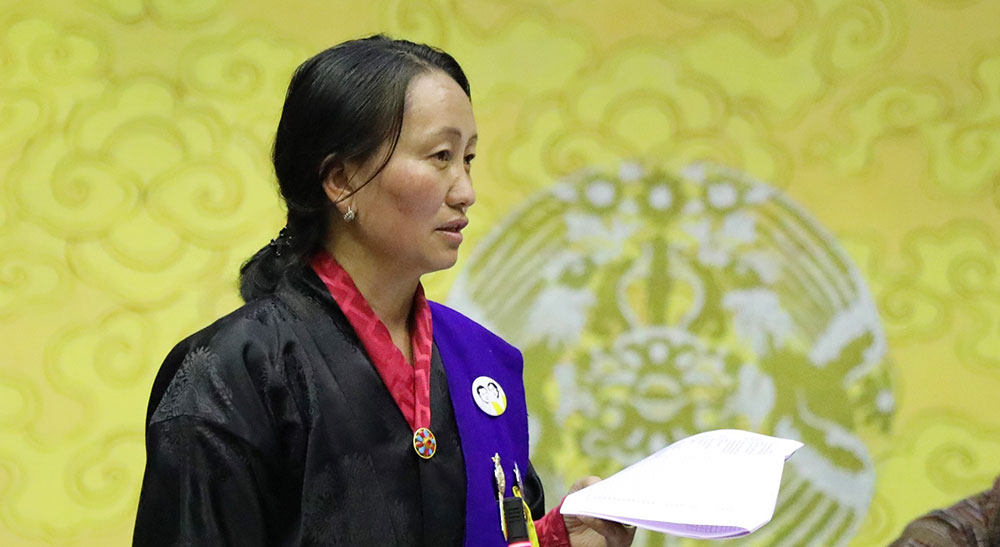Thukten Zangpo
Going by the deliberations on the Property Tax Bill 2022 in the National Assembly, property owners would likely have to pay 0.1 percent annually on the taxable value of the land (rural and urban), which will differ from area to area.
A majority of the National Assembly members yesterday supported the proposed tax rate of 0.1 percent on the taxable land value with the raise of hands during the discussion on the Property Tax Bill 2022.
Deputy Chairperson of the Legislative Committee, Mongar MP, Karma Lhamo said that the work on the property tax revision draft had started 10 years ago in 2012 with the tax and economic experts including international experts.
She said that the current property tax was based on the Revised Taxation Policy 1992. “A resident in Debsi Phaka, Thimphu and Lunana in Gasa was paying the same land tax.”
Since 1992, Karma Lhamo said that the country has seen many developmental changes and the value of the property has changed too. “The tax revision will not only benefit the taxpayers but also generate revenue for the country.”
Drametse-Ngatshang MP Ugyen Wangdi and Bardo-Trong MP Gyambo Tshering suggested imposing a tax rate below 0.1 percent.
The rationale behind pegging the tax rate at 0.1 percent of the land value, Finance Minister Namgay Tshering said, was following international best practices.
He said that the developed countries have maintained the tax rate between 1 to 2 percent and underdeveloped and developing countries between 0.2 to 0.5 percent.
He added that the country’s tax accounts for only 12 percent of the gross domestic product, which is the lowest in the world. “Property tax contributed only 0.26 percent of the total tax revenue in Bhutan while the tax contributes 80 to 90 percent in other countries,” he said.
Lyonpo said that the land tax revision based on the new Property Assessment and Valuation Agency (PAVA) rate would be applied to the value of assets to bring equity and fairness.
The PAVA rate is derived after averaging the government’s prevailing PAVA rate 2017, the current market rate, and the bank rate or collateral land to loan value.
With the difference in the value of urban and rural land, Lyonpo said that the tax amount would be different.
For buildings, the tax rate of 0.1 percent would be based on the building’s annual rental value and rates of capitalisation or the expected rate of return from the property.
Bartsham-Shongphu MP Passang Dorji suggested including a new section: “The taxable value of the land shall be the PAVA-determined compensation value of land,” after Section 8 of the Bill.
The committee was asked to look into adding a new section and report back to the house.
On reducing the tax for agricultural land, Opposition Leader Dorji Wangdi said that the country’s total arable land has been reduced to 3 percent from 7 percent with developmental activities.
He asked if the agricultural land-wetland, dry land and orchards could be exempted from taxation to encourage agriculture and support meeting the country’s goal of food self-sufficiency in future.
The committee proposed for revision in Section 9 of the Bill which states the PAVA shall revise the compensation rate in line with Section 154 of the Land Act of Bhutan 2007 after every three years.
MP Karma Lhamo recommended revising the compensation rate from time to time, as and when required since the land price would change drastically in three years.
Some members did not support the committee’s recommendation, reasoning that a change in the compensation rate will change the amount of tax payable.
The deliberation on the Bill will continue today.


